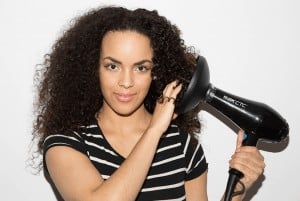Acne, or pimples, is not exactly an uncommon problem in adolescence – or adulthood, for that matter. Here’s a list of some common mistakes that can make skin worse, along with tips for making your facial skin easier.
1. You wash your face too often
Many people with pimples wash their faces too much. Acne has nothing to do with dirty skin, and you shouldn’t wash more than every morning and evening – you risk drying out your skin, which will produce even more oil – and therefore, more pimples. Instead, use a gentle face wash for oily and pimply skin. After cleansing, you can bathe with an acne gel solution or apply an acne gel. You can use the product that contains salicylic acid, which prevents the pores from clogging.
2. You’re skimping on moisture
Use a moisturizing day cream – otherwise, you risk your skin becoming imbalanced and starting to produce more of its own oil. Importantly, don’t use products that clog the orifice of the sebaceous gland and aggravate acne, such as greasy creams and oils. Some people find that an oil-free gel is most effective in moisturizing the skin. You can use an SPF moisturizer for oily skin. These usually have sebum-dissolving effects and reduces the appearance of impurities. Plus, they come with SPF, so your skin will be UV-protected. I’ll let Women’s Concepts find you the right moisturizer for you! You can also moisturize with hyaluronic acid that does not clog the skin.
3. You peel your face too hard
Exfoliation removes dead skin cells, but large abrasions can disturb sensitive skin. If dry skin isn’t removed, it builds upon the skin’s surface and clogs pores, which can cause blackheads and pimples. That’s why exfoliating can be a good thing – but skip the grain-based peel, it can be a little too harsh on the skin. Instead, use a gentle, fine-grained scrub twice a week, and feel free to supplement with a face mask afterward.
3. You change products that you use too quickly
There are no shortcuts. While it may be tempting to try that new, exciting cream because the results of your current one are lagging, it may be worth holding out a little longer. In fact, it takes about 6-8 weeks to see results from a new product – so hang in there. In the beginning, even the skin may be worse due to the skin being a little above normal. But don’t give up!
5. You’re crazy about squeezing pimples
Don’t squeeze your acne! The sebaceous gland can be damaged, and the inflammation can get worse. Also, don’t poke or cut a pimple yourself, as this increases the risk of scarring. If you can’t resist – make sure your hands are completely clean, sprayed and the pimple is yellow and ripe. If you try to squeeze a pimple too early, it may “crack inwards” – this usually results in more pimples all around.
6. You sunbathe too much
It can be tempting to sunbathe when you have pimples. The sun temporarily reduces inflammation, and the acne can get better. However, our recommendation is not to sunbathe when you have acne, and always use SPF 30 or 50 when in the sun. This is because you risk getting unsightly scars from sunbathing that will last even after the pimples have disappeared.
If you have scars on your skin, which often appear as small reddish-purple marks, these can remain for a long time if you sunbathe. The time it takes for the scars to become skin-colored is therefore prolonged by tanning. Invest in a day cream for acne-prone skin to avoid dull scars. It contains softening zinc and licorice root extract, which also reduces sebum production.
7. You’re eating wrong
There is no scientific evidence that diet affects acne. However, if you think something you eat improves or worsens your acne, trust it. Try it out and see how your skin responds when you opt-out of a particular diet. For example, if you notice that sugar gives you a lot of breakouts, you might want to cut back. Try choosing healthier options instead – maybe a handful of natural nuts for a snack instead of that Toblerone?
8. You cover up your acne
It’s super annoying when your acne shows, especially on your face, and it’s tempting to cover it up. The most important thing to remember when applying makeup is to use products that allow your skin to breathe. Use mineral makeup, it won’t clog up your skin. You can use the product that is suitable for those with problem skin or sensitive skin.
9. You don’t wash your makeup brushes
When you have problems with your skin, it’s a good idea to create the best conditions possible for it. For example, you can make sure to wash your makeup brushes a little more often. You can also use hypoallergenic brushes that are specially formulated for sensitive skin, such as acne.

